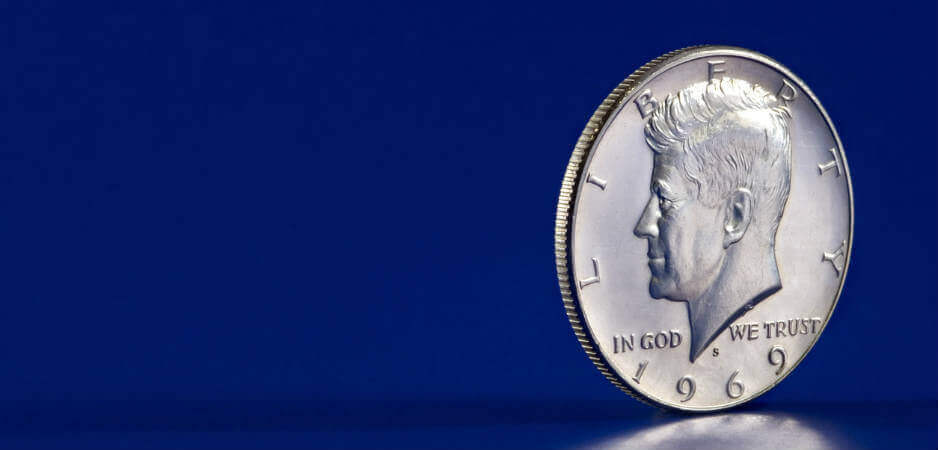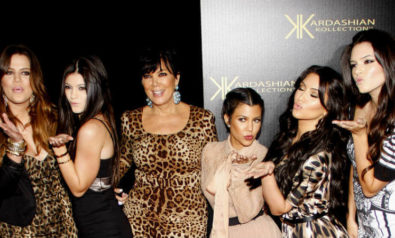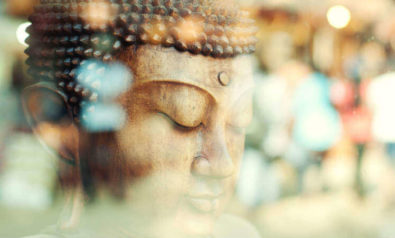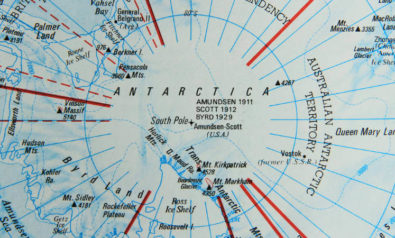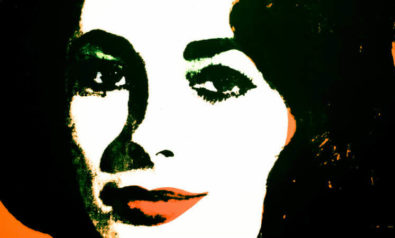Until the late 20th century, most presidents had no greater ambition than to be respected as serious custodians of the nation’s institutions and economy.
Jack Kennedy, Ronald Reagan, Barack Obama, Donald Trump, Arnold Schwarzenegger, Jesse Ventura. What’s the connection?
Two Democrats, three Republicans and an independent. Four presidents and two governors, all with wildly different backgrounds and representing widely varied political constituencies and trends.
What could possibly bind such apparently opposing personalities together? The obvious answer is the cult of celebrity, a specifically American phenomenon that in recent years has erased the boundaries between politics and entertainment. But to understand how celebrity articulates with politics, we need to look at the deeper trends in US culture, including the evolution of public values, the structure of the economy and the impact of technological change.
Celebrity culture grew rapidly throughout the 20th century, ultimately destabilizing and replacing the two contrasting foundations of US culture that had been dominant in the 17th and 18th centuries. Puritan devotion came first, with its insistence on probity, discretion, the role of Providence (divine guidance) and social conformity. For Puritans, only God deserved fame. Theirs was essentially a small farming and devotional community culture, neither rural nor urban. With the growth of cities in the 18th century, Enlightenment reason found its place alongside the Protestant ethic of hard work, solidarity and husbandry, enabling the birth of a nation and the drafting of its Constitution.
New World Protestants built the original foundations of American culture in the 17th century. They enshrined faith, loyalty, humility and identification with the local community as the pillars of their value system. The new generation of political thinkers in the following century – Thomas Jefferson, James Madison, Benjamin Franklin, Thomas Paine and an impressive crowd of engaged intellectuals — employed rational analysis of social institutions, law and the nascent science of economics, the tools of the Enlightenment, to structure their own essentially secular system of values. Inspired by the English philosopher John Locke, Jefferson famously cited “life, liberty and the pursuit of happiness” as the birthright of a free people. The “pursuit of happiness” represented an ideal closer to Voltaire’s “tend your own garden” than to its later and now current avatar, the idea of seeking wealth and fame. The secret of happiness was still modesty.
The Puritan tradition continued to guide the growing population of the colonies, with its emphasis on faith, husbandry and rootedness in the local community. Along with the spread of Enlightenment philosophy, it challenged aristocratic values, privileging pragmatic reason and an attitude of modest self-interest. Both sources tended toward universalism. Devout Christians, in their communities, believed they were following God’s plan for humanity, which many felt was specifically attributed to English-speaking Protestants. Jeffersonian rationalists believed that reason would lead them beyond the diversity of faiths and nationalities (there was no American nation) toward the universal laws of nature, a set of values acceptable to all, though not necessarily applied to African slaves or native tribes.
What enabled the Puritan and Enlightenment rationalist traditions to join forces, despite their apparent polarity, was the notion of a geographical national destiny for a self-governing people. The rationalists and political thinkers, who built, from the ground up, the legal framework of the world’s first democratic nation, like their Puritan brothers, embraced a quasi-religious faith in their mission, a faith comparable in its force to the theocratic agenda, a century earlier, of those intent on building the New Jerusalem.
For both groups, humility and discretion occupied a central place in their moral system. The religious individual deferred to God’s plan, the divine law transmitted to all believers through the Bible. Rationalists promoted the notion of natural law — “the Laws of Nature and of Nature’s God” cited in Jefferson’s preamble to the Declaration of Independence. On those grounds, they refrained from putting their personal ambitions above the needs of the nation. Even while promoting private property as a sacred right, they saw both property and life-style essentially as private affairs. Flaunting one’s personal accomplishments and wealth had no place in the new nation’s culture.
Modesty didn’t imply poverty. The discreet acquisition of wealth sat near the top of the list of personal virtues. New World Puritans saw wealth as a proof of God’s grace as well as the successful man’s place among the elect. Since the just earned their wealth through virtue, piety and hard work, adorned by God’s grace, celebrity should never precede prosperity and, if attained, should be in all cases subordinated to modesty and humility. Even the more privileged feared undue or cheaply earned fame would be taken as a sign of the unpardonable sin of vanity.
True Grit
After the birth of the nation, the economy burgeoned. Urban culture prospered through trade and new forms of industry. Territorial expansion favored the growth of farming and ranching as well as the population. An emerging middle class of small farmers, skilled workers or artisans and shopkeepers sought wealth primarily to ensure personal comfort, a stable economic activity for themselves and family status. The prosperous acquired their wealth — or at least believed that they did — through hard work and discipline in accordance with inherited Protestant values.
Much of the “hard work” of rural gentlemen and the emerging urban upper middle class consisted of the rigorous management of cheap labor, indentured servants in the North and African slaves in the South. Even before the great wave of industrial development in the mid-19th century, management was on its way to becoming the ultimate American skill. As industrial capitalism developed, owners, supervisors and foremen were called upon to manage the urban poor, initially willing to work for subsistence wages. Even with ever growing prosperity, the nouveaux riches were usually careful not to flaunt their wealth. Not at least until the dawning of the age of the robber barons later in the 19th century.
At some point in the late 19th century, US culture discovered the essential bidirectional link between wealth and fame, provoking an earthshaking shift in the foundations of American culture. The traditional values of both country and urban “gentlemen” began to erode as waves of immigration from southern and eastern Europe and Ireland began to dilute the still vibrant moral tradition associated with the Puritan social system of New England and the intellectual aristocracy of the Enlightenment.
The religiously defined codes of honor enforcing the virtues of modesty and humility, codes that persisted with the propertied classes of the countryside, lost their grip on urban Americans’ personal morals. Even in the countryside, traditional communities dissolved with the opening of the West and the mass migration associated with the California Gold Rush (1849). Hordes of foreigners came looking for fortune, fame or both at the same time. Greed itself became the locomotive of an economy that enabled the new class of industrial capitalists — the Vanderbilts, Carnegies and Rockefellers — to amass monopolistic and highly visible fortunes.
At the same time, the unpropertied urban masses and waves of immigrants seeking a better life accepted to risk their lives and livelihoods on the expanding western frontier, drawn by the lure of abundant land and California gold. Although St. Paul had called it “the root of all evil,” the love of money, or at least the quest for it, became a very apparent factor of motivation across all social classes, the new driving force in US culture.
Westward expansion also led to tales of heroism and the invention of popular heroes, immediately turned into legends, such as Davy Crockett, Jim Bowie, Wyatt Earp and Buffalo Bill. Personal prowess and feats of daring — including the slaughter of indigenous people, bears and bison — created reputations that could be turned into sources of income. Manliness — true grit — began to replace modesty and discretion in the hierarchy of moral values. In the 20th century True Grit became the title of a best-seller, subsequently turned into two highly successful movies. More recently, in the past decade, grit has become an officially recognized psychological trait elevated to the rank of essential virtue like assertiveness, both of them considered as keys to the attainment of personal success.
Turning on the Light
The invention of electricity also played a role in the shift from a culture of humility and modesty to a culture of grit, greed and the pursuit of celebrity. As the era of mass communication emerged and grew exponentially, first with the telephone, then the radio, the movies, television and more recently the internet, the opportunities for achieving and magnifying celebrity increased. America suddenly had talent and could make it known, even turn it into a consumer product through the miracle of mechanical and then electronic duplication in the media.
Instant reputations created through displays of skill, prowess or beauty could now be publicized widely and even corporatized. Clever operators, such as studio heads and music publishers, could create and exploit the copyright on any number of talented performers’ image, performances and skills. When moving pictures became technically possible at the dawn of the 20th century, the culture of celebrity —defined as both an easily exploitable source of income for the producer and distributor and a fantasized social ideal for the consumer — began to take root. Entertainment and the arts would never be the same. Neither would the dreams and personal projects of ordinary citizens.
Nevertheless, the real world continued to exist and defended its interests. Puritanical and Enlightenment traditions still had their say, at least in the realm of politics and to a large extent in business. The public continued to see politicians as public servants, capable in some cases of expressing new ideas — rhetorical skills were highly valued — and exercising leadership. As befits a democracy, politicians should be seen as ordinary citizens, belonging to the same world as voters themselves, sharing similar interests, subject to similar concerns. Politicians had to prove their capacity to understand and promote the general welfare to earn the voters’ respect and get elected.
It’s something no one expected celebrities to do. Political vision — commitment to discernible ideals and principles — was required. Management skills also played a big role as government inevitably involved handling complex relationships. The obvious importance of management skills in politics did, of course, open the door to certain corrupt practices. And the power relationships within parties meant that some forms of manipulation would be inevitable. But it was a small price to pay and the logic of both democracy and the parties themselves discouraged the emergence of celebrities in politics.
This attitude, common to both the voters and professional politicians, didn’t prevent the occasional emergence of a demagogue, such as Huey Long in Louisiana. A populist demagogue is someone who uses the political arena to achieve celebrity status, the opposite of a celebrity who gravitates toward politics. The personalities listed above, culminating with Donald Trump, represent a different, more modern trend, one that goes well beyond the political and illustrates a much more pervasive shift in US culture: the apotheosis of celebrity itself and its corollary — the definitive neutering of democracy.
Some presidents in American history achieved iconic status principally through their actions. Abraham Lincoln and both Roosevelts became political celebrities by combining distinctive and effective policies with the power of their rhetoric and their ability to manage the government’s and the nation’s resources. Charisma played a role but not necessarily the central role. Until the late 20th century most presidents had no greater ambition than to be respected as serious custodians of the nation’s institutions and economy.
The Sea Change of 1960
In 1960 a handsome young senator from Massachusetts received the nomination of the Democratic Party’s convention in Los Angeles. He went on to defeat Vice President Richard Nixon in the November election. John F. Kennedy had been groomed by his father, Joseph P. Kennedy, the youngest bank president in US history, to become the youngest ever inaugurated president of the United States, at 43 years old. Papa Joe Kennedy had spent a good part of his early career financing and operating studios in Hollywood and understood both the world of glamor and the business logic of marketing entertainment. His son John Fitzgerald became the first professionally scripted, produced and marketed presidential candidate in the history of the US.
Joe initially wanted to play the role himself, but his Nazi sympathies as ambassador to Britain were a factor in preventing that from happening. At the start of World War II, when Joe Kennedy was still serving the US in Britain, Sir Josiah Wedgwood complained to Harold Ickes, Roosevelt’s secretary of the interior that “We have a rich man, untrained in diplomacy, unlearned in history and politics, who is a great publicity seeker and who apparently is ambitious to be the first Catholic president of the U.S.” If we were to substitute “reality TV” for “Catholic” in the previous sentence, no one would be surprised to hear this bit of punditry in 2017.
When the plan didn’t work for Joe himself, he immediately began putting it into operation for his sons. The honor and actual achievement of his goal fell upon John in 1960. To get there, Papa Kennedy had managed the early career of his eldest surviving son, doing everything in his power to encourage, if not directly supply, the attributes of glamor that were needed to make this particular “production” successful. John Fitzgerald Kennedy, groomed for his role and schooled in the science of celebrity, thus became the 35th president of the United States.
Kennedy’s election was no less a shock to US culture than his assassination three years later. Pundits agreed that it was the televised debates – Kennedy’s look, his style and his manner, compared to Nixon’s — that sold him to the majority of electors, allowing him to overcome the handicap of being a Roman Catholic. From that point on, the professionals of political marketing began to factor into their strategic calculations the “celebrity dimension” on which Kennedy had capitalized. In 1961 Theodore White launched his best-seller, The Making of the President, 1960, to recount the history of the historic 1960 election. The title of White’s book told the whole story: “Making” could also be glossed as “selling.” Politicians, and in particular presidential candidates, could now be perceived as marketable commodities.
From Teddy Roosevelt to Dwight Eisenhower, the dominant parties had consistently nominated presidential candidates whose image, at least superficially, was founded on their reputations as serious managers of the political tools of the republic. They were always stalwarts of the party, familiar with the internal networks of influence. Kennedy was the first outsider to receive his party’s nomination and go on to win the presidency.
Even more surprising, Joe Kennedy, only a few years earlier, had been closely associated with Senator Joseph McCarthy, the notorious “red scare” witch hunter and declared enemy of all self-respecting progressive Democrats. Young John Kennedy, guided by his father, nevertheless managed to build his reputation as a liberal Democrat, first to win in a heavily Democratic Congressional district. Upon becoming senator, Kennedy quickly mastered his role as knight-at-arms defending the standard progressive ideology of the Democratic Party in what already appeared as an upstart’s quest for the presidency. He cemented his reputation with the publication of a book, Profiles in Courage, clearly intended to position the young senator as a political thinker and moral leader, burnishing the serious side of his image but also providing him with his own public profile as a future celebrity.
The 70-year-old wall separating entertainment and politics was crumbling. Politics and entertainment had started sharing the no man’s land that had separated them since the birth of cinema. And celebrity was the common language they now both spoke.
The 1960s thus ushered in a new era, where the values associated with Hollywood began to merge with those of Washington. The power brokers within not just government but also the nebulous military-industrial complex — which Eisenhower brought to the public’s attention three days before leaving office in January 1961 — weren’t quite prepared for this cultural shift. But the people sensed something new and different.
Presidential candidate Kennedy had already given a name to his ambitious political mission, the New Frontier, a glance at Hollywood’s tradition of Westerns, evoking a bygone era of rugged heroes and daring pioneers. On a hint provided by the glamorous and aristocratic first lady, Jackie, the press began calling Kennedy’s circle of advisers, family and friends “Camelot,” the title of an immensely popular Broadway musical at the time. The break with Truman and Eisenhower was radical, at least on the cultural front. In 1964, Bob Dylan would soon announce what was becoming obvious, further aggravated by the intervening assassination of Kennedy, “The times they are a-changin’.” In politics they certainly were.
Cultural Mutations
The golden age of Hollywood’s motion pictures, spanning the decades between Teddy Roosevelt and Eisenhower, had gradually transformed the world of entertainment and the arts into a powerful machine specialized in manufacturing and marketing celebrity and glamor. Politics, on the other hand, focused on government, budgets, the conduct of wars, foreign policy, as well as responding to strikes and stock market crashes. In short, public decision-making. Voters perceived politics as a serious business, worlds away from the frivolity of Hollywood.
The newfound peace and prosperity of postwar America, despite the distraction of the Korean War, permitted certain mutations in the culture. President and former General Eisenhower symbolized the transition from war to peace. He had all the seriousness of a military man. By contrast, Kennedy demonstrated for the first time how the business of politics could move away from the logic of war and crisis to integrate the culture of entertainment. There were even hints of a romance with no less a star than Marilyn Monroe, mirroring his father’s earlier relationship with Gloria Swanson.
The worm of entertainment was now in the apple of politics, though it wasn’t yet noticeable. Then, in California’s 1966 gubernatorial race, former actor Ronald Reagan — a man with no political experience, known instead for his recent work promoting products on television —challenged the very serious and respected California Governor Edmund G. (Pat) Brown. Brown let himself be filmed reminding a group of school children that John Wilkes Booth, the man who shot Lincoln, was an actor. The voters perceived this attack on the world of entertainment as a low blow. The shame was on Brown, not on Reagan. They reacted by rejecting the experienced liberal incumbent and handing the reins of power over to an arch-conservative Hollywood has-been. And as everyone knows, just 14 years later, Ronald Reagan, his mellifluous voice and his Hollywood smile found their way into the White House.
A period of experimentation had clearly begun as the parties proposed more and more candidates coming directly from the world of entertainment as well as politicians who, like Kennedy, could be mistaken for Hollywood actors. When Dan Quayle, who cultivated the Kennedy look, pleaded in the Vice Presidential debate, “I have as much experience in the Congress as Jack Kennedy,” his elderly opponent Lloyd Bentsen laughed him off the stage with the famous quip: “Senator, I served with Jack Kennedy. I knew Jack Kennedy. Jack Kennedy was a friend of mine. Senator, you’re no Jack Kennedy.” Looking like a political media star wasn’t enough. You had to know how to act the part. Quayle didn’t have the acting skills for the part.
No Man’s Land
For the first half of the 20th century, Hollywood and the entertainment industry had definitively neutralized and marginalized the Puritan and Enlightenment traditions described above as the multi-secular foundation of US cultural and moral values. The studios had perfected the art of manufacturing and selling to the public an easy-to-consume celebrity culture. People dressed like the stars and smoked the same cigarettes. Hollywood celebrities could sell products, but they themselves were products to be sold. Most Hollywood films even today, whatever the strength of the script, are worth the marquee value of the names of their stars.
For decades, the censors and the calculating studio heads required Hollywood to avoid not only graphic sexuality (the Hays Code) but any realistic treatment of serious social or political issues. Entertainment might provide a visual representation of historical contexts — war, the conquest of the West, kings and presidents, even famous criminals of the recent past — but marketing strategy required that it appeal to escapism rather than cultivate a sense of social or political responsibility.
That too began to change in the 1960s. At the very time when politics was discovering the virtues of Hollywood’s celebrity culture for its own electoral marketing, Hollywood was beginning to appreciate the commercial value of titles that dealt with serious issues, appealing for the first time to a significant segment of the population that wanted entertainment to help make some sense of racial revolt, assassinations, the war in Vietnam, oil diplomacy and a global monetary crisis.
The 70-year-old wall separating entertainment and politics was crumbling. Politics and entertainment had started sharing the no man’s land that had separated them since the birth of cinema. And celebrity was the common language they now both spoke. Politicians were still expected to be serious, still had to do the minimum to ingratiate themselves within their party’s power networks, but the door was now wide open for two types of glamorous political personality: established celebrities who could enter the fray and try their luck — actors, wrestlers, comedians, athletes, TV hosts — and upcoming political personalities adept at playing the role of a celebrity.
That is how, between 2004 and 2008, a young, unknown mixed race senator from Illinois imposed his personality and eventually became president. Unlike Kennedy, Barack Hussein Obama didn’t have his father to guide him into the role. With considerable talent, he patiently and assiduously crafted his own image, benefiting from a terrain that had already been prepared, first by Hollywood, then by the true pioneers: Kennedy, Reagan, Jesse Ventura and Schwarzenegger. Stardom and the aura of stardom helped break barriers. Kennedy used his celebrity veneer to overcome the fact that he was Catholic; Reagan was the first divorcee president; Schwarzenegger the first governor of a populous state to speak with a pronounced foreign accent.
Hollywood definitely helped Obama. Since 1997, at least five Hollywood films, mostly science fiction, have featured a black president. Because science fiction predicts the future, the movie could thus anticipate and even initiate an emerging trend, preparing the population psychologically for an event that had formerly seemed unimaginable to the pundits. Obama simply had to hone his “screen presence” as he sought to reach the credibility level of Morgan Freeman. His ambition and flair for the celebrity manner did the trick. And like Kennedy and Bill Clinton — both young Democratic, liberal presidents — Obama cultivated strong relationships with the entertainment industry, for inspiration as well as fundraising, to the point of appearing to be as much of a celebrity as a politician, while managing to be credible in both roles.
Après Moi…?
The 16 or so rivals of Donald Trump during the Republican primary season conformed, in a variety of ways, to the traditional criteria of seriousness and sobriety. Jeb Bush, like Hillary Clinton, counted on a different cultural phenomenon — family celebrity — to carry him through to the nomination. But they both lacked the flair, tone of voice and sheer chutzpah of true celebrities, as did all of the other Republican candidates. Trump roared through the Republican primaries while Clinton squirmed under the pressure of Bernie Sanders, a candidate who resembled an accomplished character actor rather than a Hollywood star.
But after Kennedy, Reagan and Obama does Trump really represent the continuity of the celebrity trend? In one sense, yes, because his election shows that the taste for entertainment has now definitively entered the world of politics, at least from the voters’ point of view. In the eyes of the electorate, politics has become in equal proportions boring, ineffective at solving problems and downright dangerous and depressing. If at least it could be entertaining. On that score, Trump has given satisfaction to the public and even more so to the media, who get the audience without paying for the artist, just as the artist-politician got his media time without having to pay for it — the key to ensuring his election. In some ways, it’s the fulfillment of capitalist logic: Time is money, so if you can get other people to commit their time and resources for free, you will make money. Uber does it. Airbnb does it. Why shouldn’t the media and politicians do it as well?
Trump is nevertheless different. Precisely because of the capitalist calculation above. He profited from the long-term trend that ended up conflating politics and entertainment through the phenomenon of celebrity. But he did more than that. A century after Teddy Roosevelt’s campaign against monopolies and trusts, initiating a long period in which the public required a wall of separation between business and government, the trend had moved back in the other direction.
The ideology of Reaganomics brought business and government into a deeply incestuous relationship, already prefigured by the emergence of the military-industrial complex in the postwar period. Military policy had in the past focused on the relatively simple problem of defense of the territory by human armies against real threats from identified sources. But now it was morphing into a permanently inflating fiscal effort to build a technology-oriented economy on fantasized fears. Hollywood again played its role, along with a complicit media, dramatizing those fears.
When the Cold War petered out, the War on Terror had to be invented. When the stockpile of weapons increased far beyond the capacity to use them, cyber threats were required to concentrate data about every threat possible. The big data gap along with the electronic spying gap replaced the missile gap. Industries were born and grew out of what was essentially a socialized construction of the 21st century’s economy, with the taxpayer funding everything, including the bailouts of private corporations that failed in the process.
Trump’s election demonstrates more than the convergence of celebrity culture with politics. Trump was too flawed to win the election on those grounds alone. Many people proclaimed that they would vote for him not because of his political positions or his celebrity, but because he was “a successful businessman.” The cult of success has been a feature of US culture ever since the Puritan days, when people took success for a proof of divine grace. So it makes sense that Trump’s success at amassing money and even in seducing starlets appealed to some people.
But the significance of this dimension of his victory goes beyond the belief that Trump may have been blessed by God and therefore deserves our vote. It tells us that not only politics and entertainment have merged in their common worship of celebrity, but that business, sheer money-making, has taken its definitive and essential place in the new equation for political success. The heritage of both Roosevelts, challengers of private wealth and corporate oligarchy, has been at least momentarily neutralized, not by Trump but by the political system that enabled his election. Money, celebrity and secretly-managed political power (enforced by military power) are the three ingredients that now define our institutions of government. Any two of them can combine to ensure the well-being of the whole. Trump has brought all three together in his outsize and outlandish personality.
The real question should now be, what act can possibly follow Trump’s? Whoever succeeds him in 2020 or 2024, or even prematurely after a successful impeachment, there will be less celebrity, less money and glitz as well as less sheer ego and will to control to offer the media and the public. The spectators, who love a good show with lots of special effects, and the media who need the spectacle, are likely to be disappointed, even depressed by the next act. Will it be Mike Pence after Trump’s impeachment? Could it be a Sanders-style Democrat proposing to dismantle the system and take down the elaborately constructed sets? Or can it only be a well-known celebrity, an Oprah or a Kanye West, a Katy Perry, Chris Rock or Tom Hanks, as Business Insider suggests?
It’s difficult to avoid any other conclusion than this: The American political system has reached the end of the tether in its democratic logic. Either it makes some radical effort to return to its roots or its current set of political rituals is likely collapse in chaos.
The views expressed in this article are the author’s own and do not necessarily reflect Fair Observer’s editorial policy.
Photo Credit: sherwoodimagery
Support Fair Observer
We rely on your support for our independence, diversity and quality.
For more than 10 years, Fair Observer has been free, fair and independent. No billionaire owns us, no advertisers control us. We are a reader-supported nonprofit. Unlike many other publications, we keep our content free for readers regardless of where they live or whether they can afford to pay. We have no paywalls and no ads.
In the post-truth era of fake news, echo chambers and filter bubbles, we publish a plurality of perspectives from around the world. Anyone can publish with us, but everyone goes through a rigorous editorial process. So, you get fact-checked, well-reasoned content instead of noise.
We publish 2,500+ voices from 90+ countries. We also conduct education and training programs
on subjects ranging from digital media and journalism to writing and critical thinking. This
doesn’t come cheap. Servers, editors, trainers and web developers cost
money.
Please consider supporting us on a regular basis as a recurring donor or a
sustaining member.
Will you support FO’s journalism?
We rely on your support for our independence, diversity and quality.


